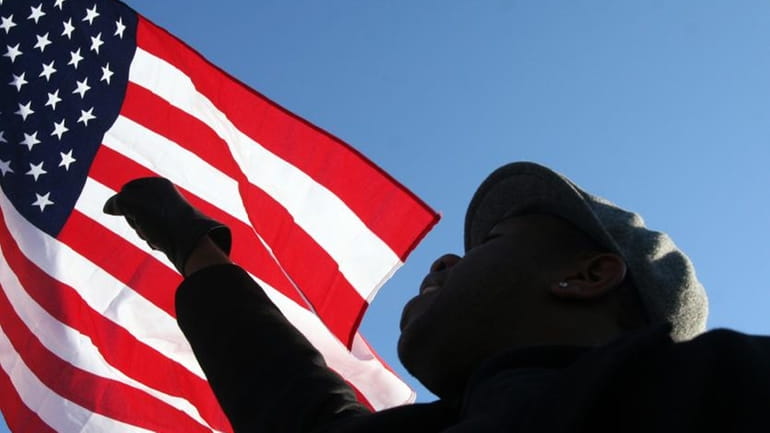Racial anger needs to be weighed against progress

Whites might see racism, but don't necessarily feel it. Credit: iStock
While we're a little more than midway through the year, it's safe to say that "Between the World and Me" by Ta-Nehisi Coates, the acclaimed black American author, will be the most talked-about book of 2015.
With racial conflict often dominating the news, Coates' book, a powerful jeremiad against American racism and white supremacy framed as a letter to his son about growing up black, has been widely hailed as essential reading for white America -- "essential, like water or air," New York Times film critic A.O. Scott wrote on Twitter. It is also a book whose claims are nearly impossible for white critics to question without being accused of wielding their privilege.
But while Coates' bitter vision is compelling, treating it as the ultimate word of truth on racial issues is a bad idea.
The essence of that vision is that violence toward "black bodies" is built into the very fabric of America. Blacks, writes Coates, cannot truly share in the American dream "because the Dream rests on our backs." The affluence he asserts is built on the plunder of black labor and the destruction of black lives. The deaths of innocent African-Americans at the hands of the police today, in this view, are not tragic breakdowns of the system but the system working as intended.
Coates' indictment is an important rebuke to those who would downplay the horrors in America's racial legacy -- horrors by no means unique to America, but perhaps especially devastating because they are a betrayal of our stated ideals. No other country was born with a declaration of human equality and inalienable rights.
But there are important parts of the story this indictment leaves out. At least 650,000 and perhaps as many as 850,000 Americans -- mostly white -- died on both sides of the Civil War. (In terms of today's population, that would mean 7.6 to 8.6 million dead.) If America gained some of its riches from the exploitation of blacks, it also paid a huge cost -- both economic and human -- for the war that ended slavery.
This is not to say, as some on the right have argued, that America deserves more credit for ending slavery, or that whites were in any sense equal victims. Racial oppression took a terrible and unique toll on blacks in the United States. But it was probably not, in any sense, a net gain for white America.
In 21st century America, it is undeniable that societal forces contribute to poverty, crime and dysfunction in the black community. It is far less clear that these problems benefit the white majority, or that, as Coates argues, American society is rigged to perpetuate white supremacy. If nothing else, this is a dated view that ignores the multicultural and multiracial nature of today's United States, where Asians outearn whites.
Coates' focus on systemic racism downplays individual black agency; but his message to white Americans also says little about what they can do, except acknowledge their sins of privilege and repent (and feel better). It's not for nothing that John McWhorter, a scholar at Columbia University and a leading black commentator, has described Coates as a priest in the new religion of the liberal white elites.
Coates' visceral anger at injustice is a tragic part of the American story, a loss of faith in the dream that the Rev. Martin Luther King Jr. sought to affirm for blacks. His voice needs to be heard; but so do other, more optimistic black American voices like McWhorter's.
Our racist history and its modern effects are all too real. But so is the progress toward a more just and equal future.
Cathy Young is a regular contributor to Reason magazine and Real Clear Politics.
